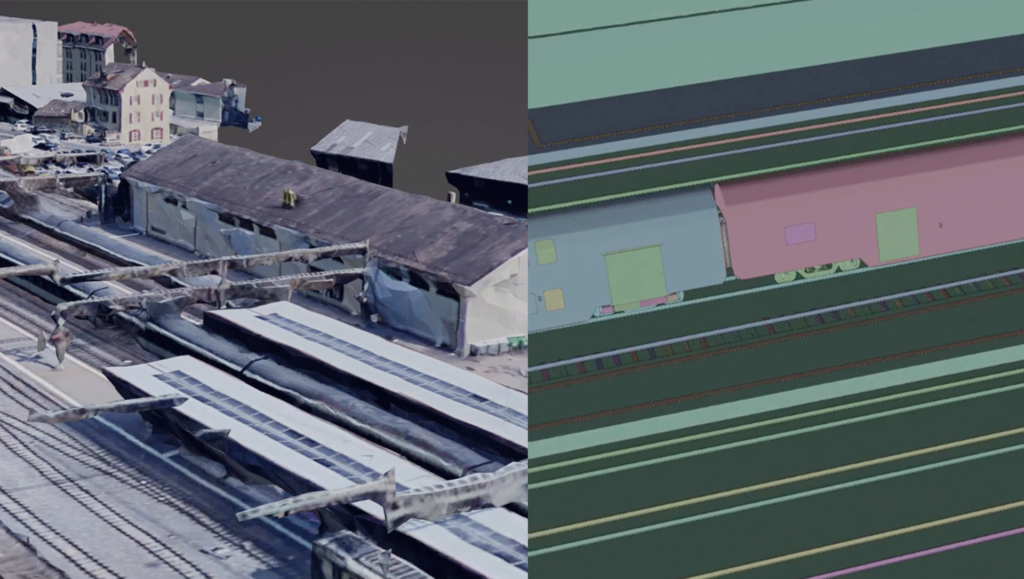For several months, Border Forensics has been investigating the death of Roger ‘Nzoy’ Wilhelm, a Swiss man of South-African descent, who was killed by the police in Morges Station (Switzerland) on August 30th, 2021. More than two years after his death, and whereas the exact unfolding of events remains unclear, the Public prosecutor’s office recently announced its will to close the case.
While our investigation on Roger ‘Nzoy’ Wilhelm’s death is still ongoing, and in contribution to the demand for truth and justice of the Independent Commission of Inquiry on the Death of Roger Nzoy Wilhelm, today the preliminary analysis Border Forensics has produced of a sequence of the events has been submitted the Public prosecutor’s office. It will be made public in time.

Press release: Independent Commission and Border Forensics criticize prosecution in Roger Nzoy Wilhelm homicide case and release overlooked evidence.
Zuricher Roger Wilhelm, aged 37, was shot dead by a police officer on August 30th 2021, at Morges train station. Wilhelm was left on his stomach for six and a half minutes, without the other police officers involved providing him with first aid. Despite this, on October 10th, 2023, the Public Prosecutor’s Office of the canton of Vaud announced that it would not prosecute either the homicide or the failure to render aid.
Switzerland does not have an independent institution to investigate incidents of police violence, so an independent civil society review and investigation into this death case is urgent. An independent commission made up of scientists from the fields of medicine, psychology, law and social sciences as well as the scientific research organization Border Forensics are now examining the case themselves. The provisional results of this research were presented today in Lausanne in the presence of Evelyn Wilhelm and lawyer Ludovic Tirelli, in charge of the case. This work shows that the decision of the Public Prosecutor’s Office must be urgently questioned.
Elio Panese, member of the Border Forensics research team, reconstructed down to the second the course of the homicide in Morges using a film. This film shows that Roger Wilhelm remained on the ground handcuffed for six and a half minutes while he had a gunshot wound to the back and made no movement other than breathing. This proves that the police officers involved neglected to take vital rescue and resuscitation measures. Dr. Martin Herrmann, who is one of the medical experts of the commission (FMH specialist in general surgery and traumatology), confirmed in his analysis that the necessary first aid measures had not been taken, although Roger Wilhelm, lying on his stomach, represented no threat to the police officers and that he was still making respiratory movements. The question to be clarified in court is: Could Roger Wilhelm’s life have been saved by immediate first-aid measures taken by the police?
Udo Rauchfleisch, professor emeritus of clinical psychology and member of the commission, wrote a report based on psychiatric records, interviews with relatives, witness statements and video footage of the homicide of Roger Wilhelm. According to this report, the Vaud police were called to help a Black man who showed symptoms of psychosis. According to the expertise of Prof. Rauchfleisch, Roger Wilhelm was not in any way or at any time aggressive, but he was stressed and would have needed psychological help. Instead of helping, the four police officers increased Roger Wilhelm’s psychological stress. He was considered a threat and was eventually shot dead. This is why another decisive question arises, which must be clarified in court: was the behaviour of the police officers adequate and was the use of firearms necessary and by the law?
The death of Roger Wilhelm must be placed in the context of other homicides of Black people by the police in Switzerland. In the case of Mike Ben Peter, who died on February 28, 2018 following a police intervention, the prosecutor in charge of the investigation, who is also handling the case of Roger Nzoy Wilhelm, surprisingly requested the acquittal of the police officers involved during the trial. Me Brigitte Lembwadio Kanyama, member of the
Commission’s legal group, severely criticized the treatment of deaths occurring following police interventions in the canton of Vaud. In all cases, the people killed were Black people. Lawyer Philipp Stolkin, a member of the Commission’s legal group, stressed that the public prosecutor’s office should be able to carry out its investigation regardless of the skin colour of the victim and the fact that a person suspected of having committed an offence is used by a public law entity.
According to another member of the commission group, lawyer David Mühlemann, from a human rights perspective, the public prosecutor’s office is obliged to investigate such exceptional deaths independently, effectively, and comprehensively: “What is at stake is nothing less than public confidence in the state’s monopoly on violence.” By wanting to close the case, the public prosecutor is preventing the possibility of an investigation that complies with human rights. This is why the Commission urges the Vaud Public Prosecutor’s Office to open an investigation into the Roger Nzoy Wilhelm affair and bring the matter to court.
You can find more information at https://nzoycommission.org/
Contact: nzoycoordination@gmail.com
Methodology report
Download the methodology report here:
Équipe de recherche
Border Forensics
Head of research: Charles Heller
Lead researcher: Elio Panese
Video maker: Emile Costard
Partner
The Independent Commission of Inquiry on the Death of Roger Nzoy Wilhelm